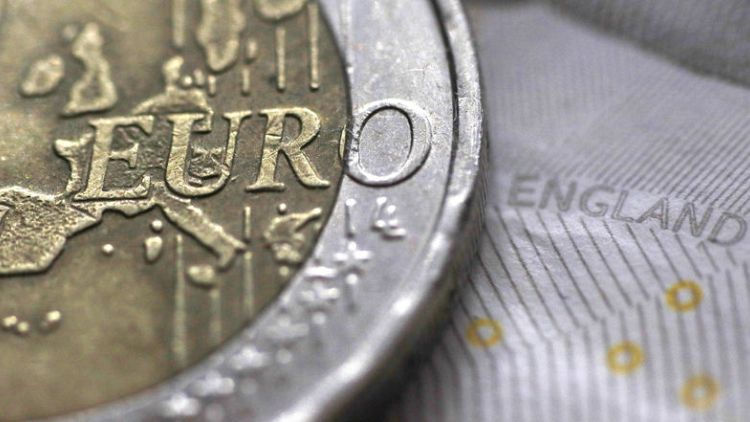By Dhara Ranasinghe
LONDON (Reuters) - Germany's benchmark 10-year bond yield held below zero on Monday and close to its lowest levels in more than two years as fears grew that the world economy was headed for recession.
After posting its biggest one-day fall since the start of January on Friday, the German Bund yield -- alongside euro zone peers -- crept higher in early trade with focus turning to the German Ifo business sentiment survey this session.
The Ifo survey took on particular significance after economic data on Friday gave a bleak outlook and sparked a repricing across financial markets.
A German manufacturing activity survey showed a contraction for the third straight month. Preliminary measures of U.S. manufacturing and services activity for March showed both grew at a slower pace than in February.
After Friday's U.S. numbers, the gap between yields on three-month U.S. Treasury bills and 10-year notes fell below zero for the first time since 2007.
An inverted yield curve is widely considered a leading indicator of recession, and that spread is the Federal Reserve's preferred measure of the yield curve.
Graphic: U.S. yield curve inverts for first time since 2007 (https://tmsnrt.rs/2UNVc1P)
"There is a strong recession signal from the U.S. curve and that is important," said Nordea chief analyst Jan von Gerich. "It would be dangerous to say the move in bond yields is over- done -- the momentum is quite strong and I wouldn't catch a falling knife."
Most 10-year government bond yields in the euro area were 1-2 basis points higher on Monday.
Germany's Bund yield stood at minus 0.01 percent and near Friday's almost 2 1/2-year low of minus 0.03 percent. It has tumbled 20 bps so far in March, in line with steep falls in the yields of other major bond markets.
In addition to weak economic data, heightened uncertainty over Brexit and world trade tensions have bolstered demand for safe-haven bonds. Investors ditched stocks and fled to bonds overnight.
On Monday, yields on 10-year Japanese government bonds slumped to minus 9.2 basis points, the weakest since September 2016. Australian 10-year year yields plunged to a record low of 1.754 percent.
"We think the market is pricing an overly sinister outlook, but markets will want confirmation before shifting back," analysts at ING said in a note.
Graphic: Euro zone periphery govt bond yields (http://tmsnrt.rs/2ii2Bqr)
(Reporting by Dhara Ranasinghe)



